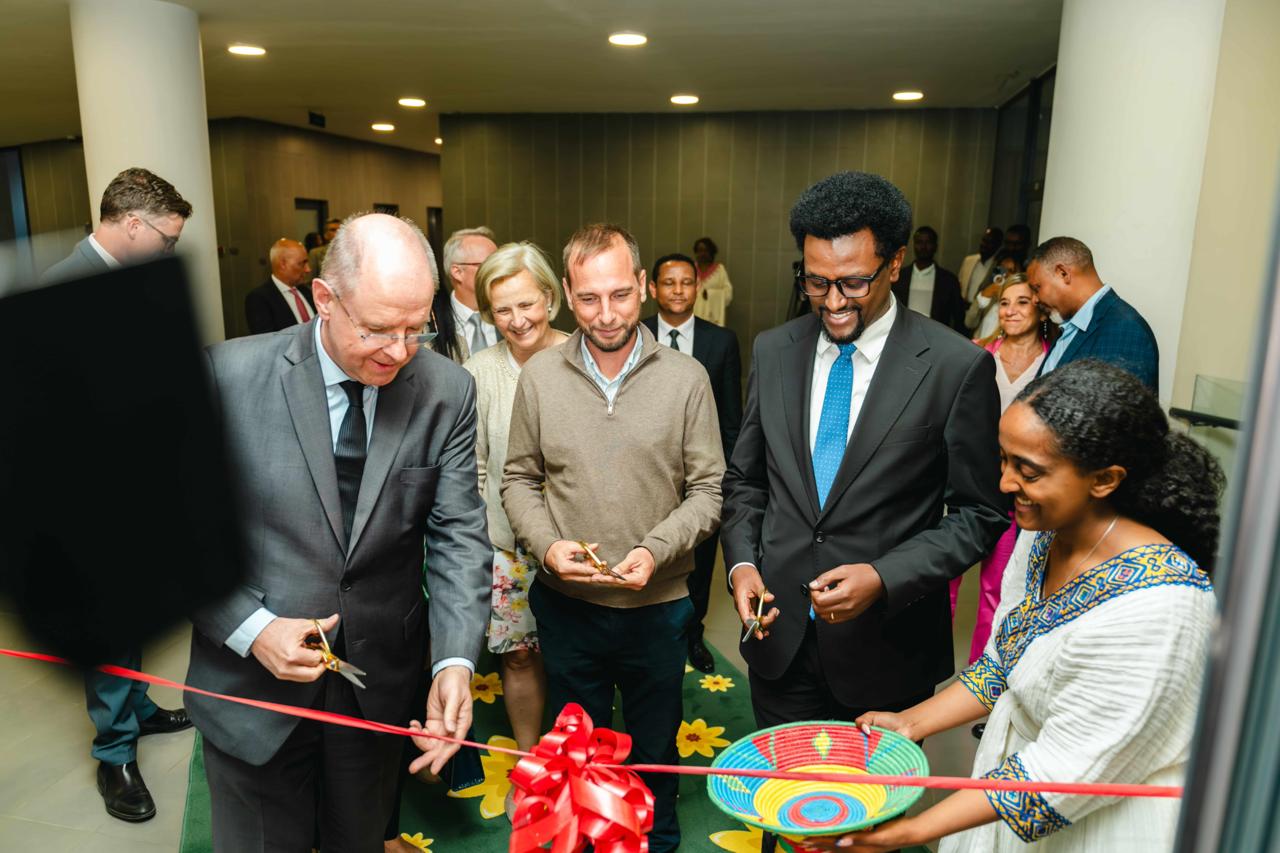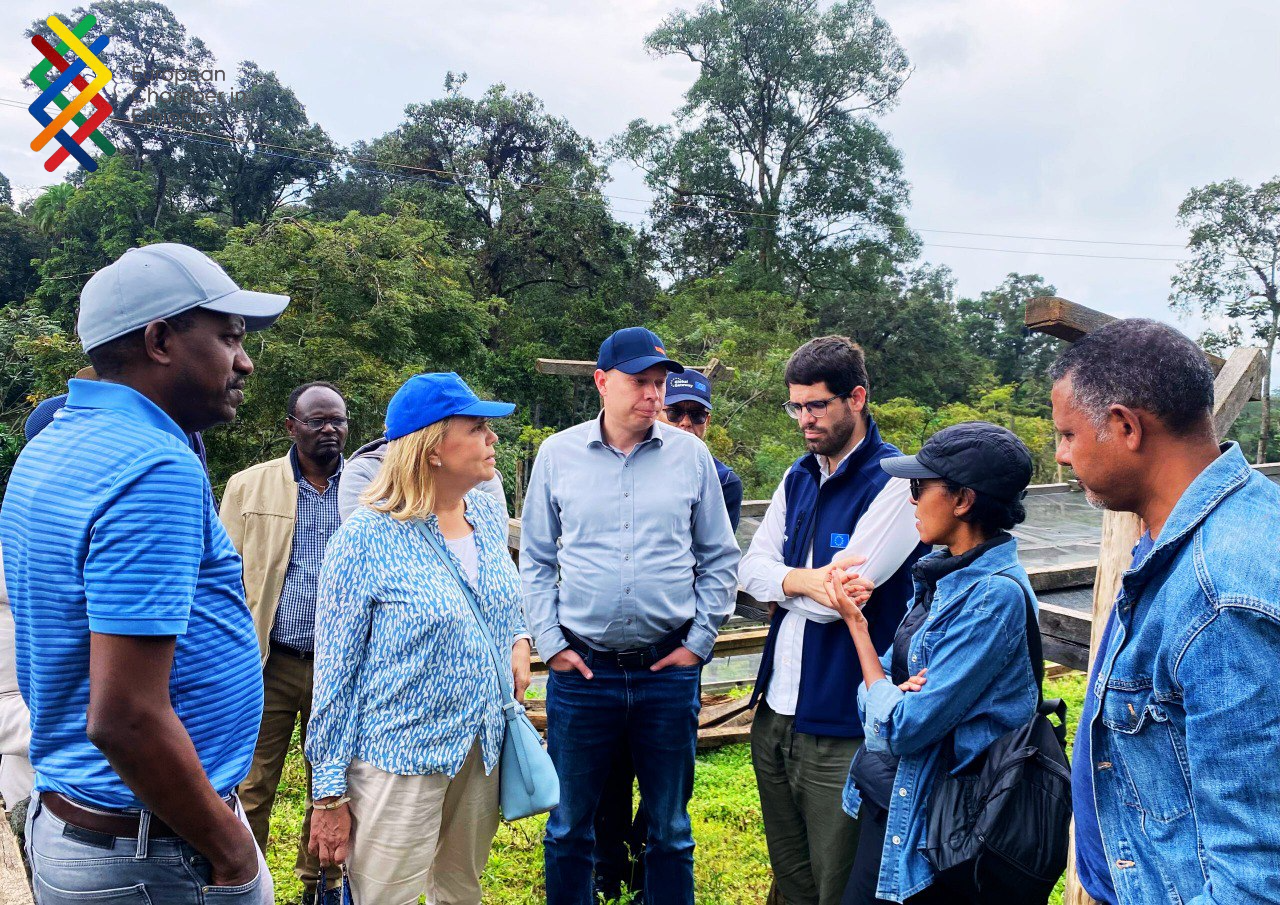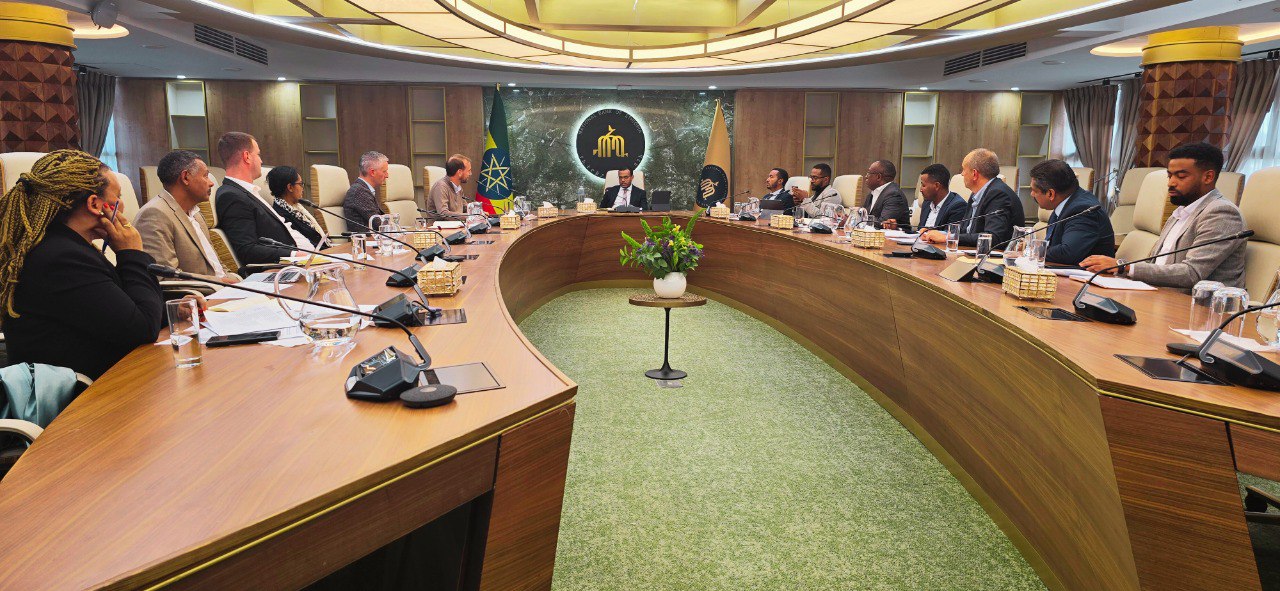
EuroCham’s Monthly CEO Networking Event Discusses Shipping and Logistics Along the Red Sea Route
The European Chamber in Ethiopia hosted its monthly CEO networking event on April 18, 2024. Guest speaker of the event, Ato Dawit Wubshet, Managing Director of Wubget Holdings, and Board Chair of the Ethiopian Freight Forwarders and Shipping Agents Association (EFFSAA), shared his insight on navigating the opportunities and challenges related to shipping and logistics along the Red Sea route.
Ato Dawit’s briefing highlighted a critical issue: container shortages at key ports, particularly the congestion in Djibouti. This bottleneck, further complicated by Djibouti’s transhipment of cargo to Yemen, is causing major disruptions for investors across industries. Ethiopian coffee exports, especially vulnerable due to their commodities’ perishable nature and susceptibility to price fluctuations, are particularly affected. While alternative ports like Berbera offer potential, their utilization remains hindered by ongoing conflicts, the absence of a finalized bilateral agreement, security concerns, and incomplete infrastructure development. Despite having sufficient warehouse capacity and the potential to handle around 500,000 containers, Berbera’s full functionality awaits a resolution to these political and infrastructural roadblocks.
Mombasa, another potential alternative port, faces significant drawbacks. Its immense distance of approximately 1,300 kilometers creates logistical hurdles, making it impractical to reroute shipments across such a vast stretch. Furthermore, the road infrastructure leading to Kenya or the Moyale border presents additional challenges, with limited capacity to handle the maximum tonnage of Ethiopian trucks (around 40 tons) compared to the port’s maximum capacity of 28 tons. This disparity necessitates offloading and reloading cargo at Moyale, leading to a significant increase in expenses, manpower, energy, and overall transit time. Compared to the port of Djibouti, utilizing Mombasa would result in a substantial rise in land logistics costs and inefficiencies.
While the Lamu Port-South Sudan-Ethiopia-Transport (LAPSSET) Corridor remains under development, both Ethiopia and South Sudan are actively pushing for its completion. This initiative marks a significant step forward with the arrival of a trial shipment, with the first vessel expected to dock at the port on May 5, 2024.
Ato Dawit mentioned that Ethiopia’s new transport directive for the next decade seeks to revolutionize the logistics landscape by offering two distinct strategies. In terms of foreign investment, the directive allows foreign companies to partner with domestic entities on a 51-49 basis. This collaboration aims to inject fresh capital, technology, expertise, and manpower into the logistics sector, ultimately enhancing its efficiency and capabilities. Additionally, the government is granting multimodal licenses to three major companies. These companies will work alongside the Ethiopian Shipping Line, leveraging air, sea, and road transportation to develop and facilitate diverse routes, maximizing Ethiopia’s logistical reach. The Managing Director acknowledged Ethiopia’s strategic geographic location, ideally situated to serve various businesses throughout the region. By effectively leveraging its logistics sector, embracing cutting-edge technologies, and undergoing digital transformation, the country can unlock significant economic benefits. Conversations that followed Ato Dawit’s briefing focused on the practical experiences of the investment community with various ports in the region.
latest News
EuroCham Launches a New Office and FDI Incubation Center
February 1, 2026
EU and EuroCham Sign Grant to Boost Ethiopia’s FDI competitiveness
November 22, 2025
EuroCham Networking Event Discusses New Income Tax Law
October 22, 2025
EuroCham Urges Reconsideration of EUDR Timeline
September 29, 2025
EuroCham Conducted Technical Discussions with Outgoing NBE Governor
September 17, 2025






